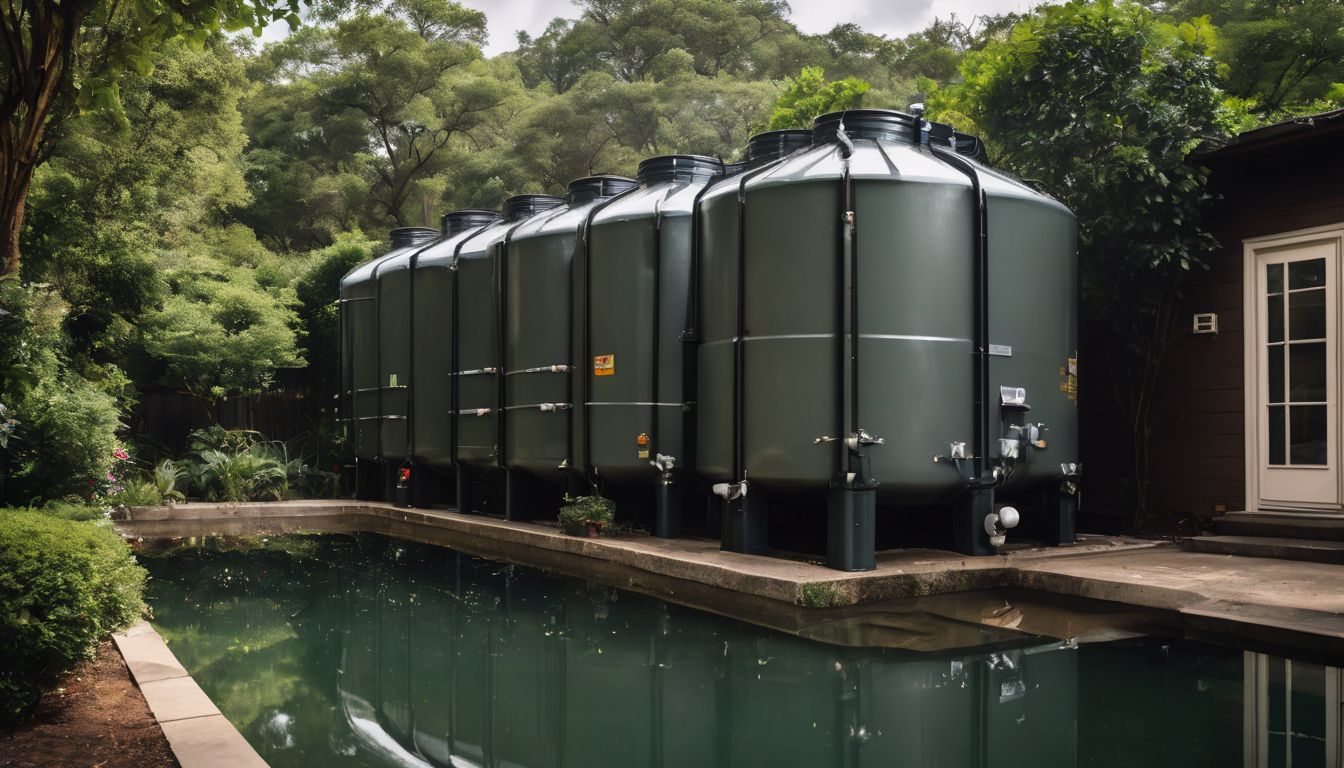Are you looking to make a positive impact while exploring the great outdoors? Ecotourism is taking off globally as a way to benefit local communities and preserve our natural surroundings.
This blog will guide you through organising community eco-tours and nature walks that support sustainability and foster environmental appreciation. Dive in for eco-adventure insights!
Key Takeaways
- Eco – tourism provides economic opportunities and promotes environmental conservation, benefiting local communities by creating jobs and fostering pride in their natural heritage.
- Engaging with the environment through eco – friendly tours offers educational experiences, teaching visitors about sustainability and inspiring them to participate in conservation efforts.
- Choosing accommodations with green certifications, supporting local artisans and businesses, and encouraging sustainable practices such as using reusable items are effective ways to reduce tourism’s environmental impact.
- Cultural sensitivity during eco – tours is vital; learning about traditions, respecting sacred sites, and involving community members enhances the experience for both tourists and locals.
- Promoting eco-tours involves obtaining eco-certifications to build trust with travellers seeking sustainable options, utilising online booking systems for wider reach, and leveraging social media for greater engagement.
The Importance of Ecotourism
Ecotourism benefits local communities by providing economic opportunities and preserving natural heritage. It also promotes environmental conservation and provides educational experiences for visitors.
Benefits for local communities
Organising community eco-tours and nature walks creates valuable economic opportunities for local residents. It opens up new jobs as tour guides, accommodation hosts, and providers of transport services.
Locals also get the chance to sell traditional crafts, food, and other cultural items to visitors. This injection of tourism revenue helps to stimulate small-scale economies and encourages the growth of family-run businesses that are vital for community wellbeing.
Community engagement in ecotourism initiatives leads to enhanced conservation awareness among locals. They become active participants in preserving their natural heritage while showcasing it to tourists.
Through responsible travel experiences, villagers learn about environmental conservation firsthand. Such participation not only protects local ecosystems but also instills a sense of pride in maintaining their environment for future generations.
Benefits for the environment
Minimise the impact of tourism on natural resources and ecosystems, preserving the environment for future generations. Reduce carbon emissions by promoting eco-friendly transportation options such as walking tours or cycling routes.
Emphasise conservation efforts to protect local wildlife and promote sustainable travel practices in ecotourism destinations.
Support conservation projects to safeguard fragile ecosystems and preserve biodiversity. Encourage responsible tourism by minimising waste and reducing plastic consumption during outdoor activities to minimise environmental impact.
Benefits for education
Transitioning from the positive impact on the environment, ecotourism also provides significant benefits for education. Engaging in nature-based tourism offers opportunities for visitors to learn about local ecosystems and wildlife conservation efforts.
Through wildlife exploration and ecological tours, individuals gain a deeper understanding of environmental sustainability and local conservation initiatives.
Educational experiences during eco-tours allow participants to develop an appreciation for nature while learning about biodiversity and the importance of preserving natural habitats.
Planning an Eco-Friendly Tour
When planning an eco-friendly tour, it is important to choose accommodations that are environmentally conscious, support local businesses to contribute to the community, reduce plastic waste by encouraging reusable items, and utilise eco-friendly transportation options.
These steps will help minimise the environmental impact of the tour and benefit both the local community and the environment.
Choose eco-friendly accommodations
Opt for eco-friendly accommodations that prioritise sustainability and environmental protection. Look for hotels, lodges, or guesthouses with green certifications such as LEED or Energy Star.
Seek out places committed to reducing their carbon footprint through energy-efficient practices and waste reduction initiatives. By choosing eco-friendly accommodations, you actively support businesses that share your commitment to preserving the environment and local communities.
Consider staying in eco-lodges surrounded by natural landscapes, providing a unique opportunity to immerse yourself in the region’s biodiversity while minimising negative impacts on fragile ecosystems.
Support local businesses
Back local businesses by choosing locally owned accommodations and restaurants. By doing so, you are contributing to the economic growth of the community while reducing the carbon footprint from transportation.
Opt for souvenirs made by local artisans to support their craft and preserve traditional skills within the community.
Engage with local tour operators who have a deep understanding of the area, providing an authentic experience while empowering them economically. This direct support elevates the community’s image and increases employment opportunities, ensuring that tourism benefits all aspects of the locality.
Reduce plastic waste
- Bring reusable water bottles and containers for snacks to avoid single-use plastics.
- Avoid purchasing items with excessive plastic packaging, opting for products with minimal or no plastic.
- Use eco – friendly, biodegradable toiletries to minimise plastic waste from personal hygiene products.
- Encourage participants to pick up any litter they see along the trail or during the tour to prevent plastic pollution in natural areas.
Use eco-friendly transportation
- Opt for public transport or shared transport services such as buses, trams, trains, or car sharing to reduce emissions and energy consumption.
- Consider renting bicycles or offering guided cycling tours as a sustainable way to explore the area while promoting physical activity and reducing air pollution.
- Utilise electric or hybrid vehicles for transportation between tour sites to minimise reliance on fossil fuels and lessen environmental impact.
- Encourage walking tours as an eco-friendly way to experience the surroundings while promoting physical activity and minimising pollution from motorised vehicles.
- Promote awareness of low – impact travel options among tour participants through educational materials and discussions during the tour.
Respect for Local Culture
Prioritise cultural sensitivity by learning about local customs and involving the community in your eco-tour planning. Partner with local guides to ensure a respectful and meaningful experience for both tourists and locals.
Learn about the cultural sensitivities
Before embarking on an eco-tour, it is essential to learn about the cultural sensitivities of the local community. Understanding and respecting their customs and traditions will enhance your experience and ensure that you are a responsible visitor. Here are some important points to consider:
- Research the cultural norms and practices of the community you will be visiting to avoid unintentional disrespect.
- Learn a few basic words or phrases in the local language to show appreciation for their culture and make meaningful interactions.
- Dress modestly and appropriately according to the local customs, honoring their traditions.
- Respect sacred sites, religious customs, and traditional rituals by following any guidelines provided by local guides or community members.
- Be mindful of photography restrictions in certain areas, always seek permission before photographing people or sacred sites.
- Engage with locals respectfully, showing genuine interest in their way of life without imposing your own values or beliefs.
Involve the community
After learning about the cultural sensitivities of the local community, involving them in eco-tourism activities becomes crucial. Engaging with the community can lead to a deeper understanding of their way of life, traditions, and environmental knowledge.
This involvement can be fostered through collaborative initiatives such as community-led nature walks, participation in conservation projects, or even inviting locals to share their expertise as guides.
By involving the community in eco-tourism efforts, it not only benefits their livelihoods but also nurtures a sense of ownership and responsibility towards preserving the natural surroundings.
Partner with local guides
Partnering with local guides can provide an authentic and insightful experience for eco-tourists. Local guides possess valuable knowledge about the area’s history, culture, and environment, enhancing the tour with engaging stories and unique perspectives.
By collaborating with local guides, eco-tour operators can support the community while promoting sustainable tourism practices and preserving natural habitats. This partnership also ensures that tourists respect local customs and traditions, fostering a deeper understanding of the destination’s cultural significance.
Next: “Conservation Efforts”
Conservation Efforts
Get involved in conservation efforts by volunteering for local projects and learning about the environment. This will not only enrich your experience, but also contribute to the preservation of the natural habitats and wildlife.
Volunteer for conservation projects
Get involved in conservation projects to make a direct impact on preserving the local environment. Participate in habitat restoration, wildlife monitoring, and community clean-up efforts.
By volunteering for these initiatives, you actively contribute to the protection of natural habitats and endangered species while supporting the sustainable development of ecotourism.
Engage with local conservation organisations and join hands-on activities such as tree planting, beach clean-ups, and trail maintenance. Through active participation in these projects, you can experience the rewards of contributing to the preservation of natural spaces firsthand.
Learn about the local environment
Explore the local environment by engaging in nature walks and eco-tours to understand the delicate balance of ecosystems. Discover the unique flora and fauna while learning about conservation efforts in the area.
Participate in guided tours led by local experts, gaining insights into sustainable practices that preserve the natural surroundings for future generations. Witness firsthand how community-based tourism contributes to protecting biodiversity and supporting local livelihoods, fostering a deeper appreciation for environmental conservation.
Immerse yourself in hands-on experiences that showcase innovative conservation strategies, creating memorable connections with nature and inspiring a commitment to responsible travel practices.
Marketing and Promotion
Utilise eco-certification to showcase your commitment to sustainable tourism practices. Sign up for online booking systems and use social media platforms to reach a wider audience and promote your eco-friendly tours.
Use eco-certification
When organising community eco-tours and nature walks, it is essential to use eco-certification to demonstrate your commitment to sustainability. By obtaining eco-certification for your tours, you can provide assurance to environmentally conscious individuals that your activities adhere to strict environmental standards while supporting conservation and local communities.
This ensures that the tours align with the principles of ecotourism and contribute positively towards the protection of natural environments.
By showcasing eco-certification on marketing materials and online platforms, potential participants will be more inclined to choose your tours over others. Utilising eco-certification not only strengthens the credibility of your operations but also appeals to a growing market of individuals seeking responsible and sustainable travel experiences.
Sign up for online booking systems
Explore online booking systems that support eco-friendly and sustainable travel. Look for platforms that promote responsible tourism and offer options to offset carbon emissions. Select booking systems with a focus on community-based tourism, wildlife conservation, and local cultural experiences.
Use these platforms to discover authentic nature-based tours and activities led by knowledgeable guides who prioritise environmental protection.
Maximise your impact by choosing online booking systems that provide opportunities to engage with local communities, contribute to conservation efforts, and minimise negative environmental impacts.
Utilize social media
Promote eco-tours through engaging posts and updates on platforms like Instagram and Facebook, showcasing the natural beauty and unique experiences.
- Share captivating photos and videos of local flora, fauna, and conservation efforts
- Create interactive contests or quizzes to raise awareness about environmental issues
- Collaborate with influencers who support sustainable travel and conservation causes
- Engage with the audience by responding to comments, messages, and enquiries in a timely manner
- Use hashtags related to ecotourism, nature walks, sustainability, and community engagement to reach a wider audience
Conclusion
In conclusion, organising community eco-tours and nature walks can provide valuable benefits for local communities, the environment, and education. By choosing eco-friendly accommodations, supporting local businesses, and reducing plastic waste, we can minimise our impact on the environment.
Respect for local culture is crucial; involving the community and partnering with local guides can create a more authentic experience. Finally, promoting conservation efforts through volunteering and learning about the local environment helps to protect these precious natural resources.
FAQs
1. What are community eco-tours and nature walks?
Community eco-tours and nature walks are outdoor activities that focus on adventure tourism and wildlife tourism, organised with local community involvement to explore natural environments in an eco-friendly way.
2. How does organising these tours benefit the local community?
By engaging in community-based tourism, such as ecological tours, the local community can share their cultural heritage while promoting sustainable practices and supporting the economy through nature-based tourism.
3. What should I consider to make my eco-tour environmentally friendly?
When planning an eco-friendly tour, consider minimising impact on wildlife, teaching participants about conservation, ensuring that activities support preservation efforts and involve those from within the community for a genuine experience.
4. Can anyone start organising community-organised nature trips?
Yes! With a passion for ecological tourism and a commitment to working closely with local communities for guidance and support, almost anyone can organise these kinds of responsible travel experiences.





